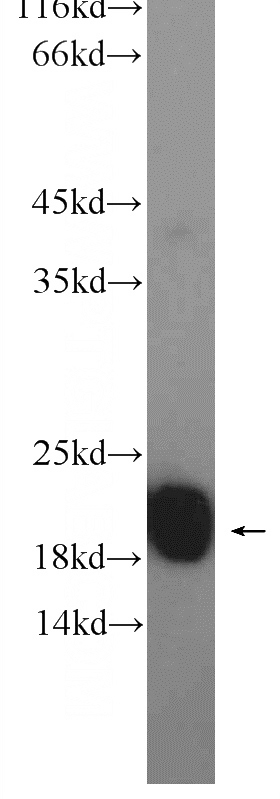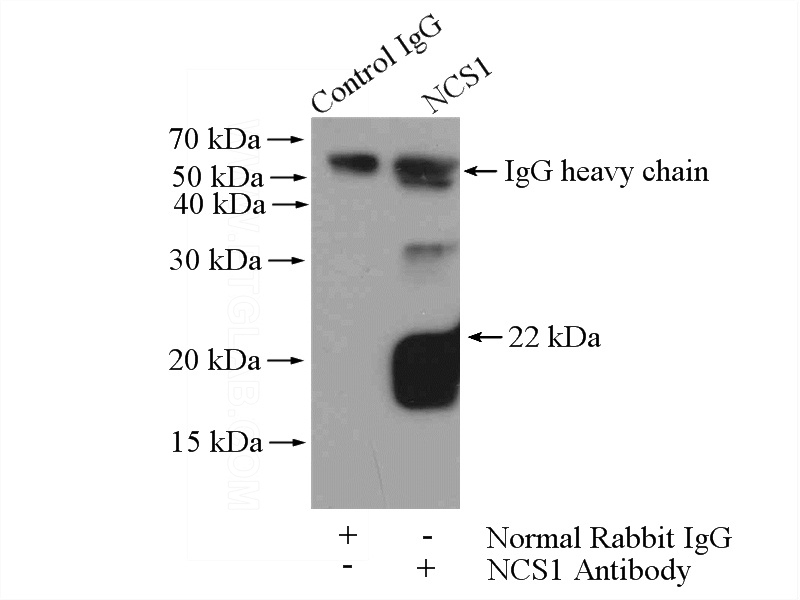-
Product Name
NCS1 antibody
- Documents
-
Description
NCS1 Rabbit Polyclonal antibody. Positive WB detected in mouse brain tissue, A431 cells, HepG2 cells, human brain tissue, mouse cerebellum tissue, PC-3 cells, rat brain tissue, SH-SY5Y cells. Positive IP detected in mouse brain tissue. Observed molecular weight by Western-blot: 22 kDa
-
Tested applications
ELISA, WB, IP
-
Species reactivity
Human,Mouse,Rat; other species not tested.
-
Alternative names
DKFZp761L1223 antibody; FLUP antibody; FREQ antibody; Frequenin homolog antibody; frequenin homolog (Drosophila) antibody; Frequenin like protein antibody; NCS 1 antibody; NCS1 antibody; Neuronal calcium sensor 1 antibody
-
Isotype
Rabbit IgG
-
Preparation
This antibody was obtained by immunization of NCS1 recombinant protein (Accession Number: NM_014286). Purification method: Antigen affinity purified.
-
Clonality
Polyclonal
-
Formulation
PBS with 0.1% sodium azide and 50% glycerol pH 7.3.
-
Storage instructions
Store at -20℃. DO NOT ALIQUOT
-
Applications
Recommended Dilution:
WB: 1:1000-1:10000
IP: 1:500-1:5000
-
Validations

mouse brain tissue were subjected to SDS PAGE followed by western blot with Catalog No:113048(FREQ Antibody) at dilution of 1:2000

IP Result of anti-FREQ (IP:Catalog No:113048, 4ug; Detection:Catalog No:113048 1:1000) with mouse brain tissue lysate 4000ug.
-
Background
NCS1 is a member of the neuronal calcium sensor gene family. It regulates G protein-coupled receptor phosphorylation in a calcium-dependent manner and can substitute for calmodulin. The protein is associated with secretory granules and modulates synaptic transmission and synaptic plasticity.
-
References
- Mun HS, Saab BJ, Ng E. Self-directed exploration provides a Ncs1-dependent learning bonus. Scientific reports. 5:17697. 2015.
- Saab BJ, Georgiou J, Nath A. NCS-1 in the dentate gyrus promotes exploration, synaptic plasticity, and rapid acquisition of spatial memory. Neuron. 63(5):643-56. 2009.
Related Products / Services
Please note: All products are "FOR RESEARCH USE ONLY AND ARE NOT INTENDED FOR DIAGNOSTIC OR THERAPEUTIC USE"
